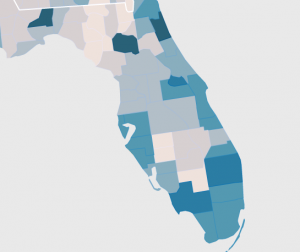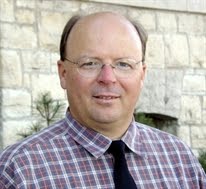Margarita A. Mooney, Assistant Professor of Sociology at the University of North Carolina at Chapel Hill and a Faculty Fellow in the Carolina Population Center at the University of North Carolina, recently blogged about her experience with rethinking how best to teach online. She writes: . . . I have flipped the order in which I present material to students and it definitely captured their attention better than before. I used to assign heavy readings, give a lecture, and then Read More …
Trends
Mega Megachurches (#0733)
Warren Bird, Research Director for Leadership Network and co-author of 24 books on various aspects of church health and innovation, recently blogged about the global growth in and diversity of megachurches (congregations with an average weekend worship attendance of at least 2,000). Americans know about megachurches since they have grown rapidly in number over the last several decades. According to Scott Thumma and Dave Travis, (Beyond Megachurch Myths: What We Can Read More …
Trends in College Degree Attainment (#0731)
I grew up with the understanding that a college degree was a part of the path leading to the American dream. A recent Chronicle of Higher Education interactive graphic provides the clearest visual explanation of trends in college degree attainment across the country. The graphic provides county by county analysis of the percentage of adults with college degrees, which can be further sorted by gender or race. Additionally, the graphic provides the same information for Read More …
The Changing Church (#0726)
Renowned New Testament scholar Scot McKnight has always managed to balance academic excellence with immersion in and understanding of the real world of church life. Given such, it isn't surprising to learn he will be leaving North Park University after this academic year for Northern Seminary. His recent blog post on how the church has changed during his lifetime is a must read. The piece is not intending to pass judgment on the changes, but rather call attention to Read More …
Mormon Growth: Myth or Fact? (#0724)
According to the latest data from the Association of Statisticians of American Religious Bodies (ASARB) U.S. Mormon growth rose 45.5% "jumping from 4.2 million in 2000 to 6.1 million in 2010." This incredible growth does not accurately reflect the growth in adherents during the last decade; it reflects a change in the data being reported. More specifically, ASARB tracks self-reported data given to them by some 153 bodies. What happened? In 2000 Mormons reported 4.2 million, a Read More …
Reaching Young Adults (#0723)
Naomi Schaefer Riley's recent Wall Street Journal article considers how churches in Charlotte, NC have worked together across denominational lines to create a growing ministry to a demographic most congregations struggle to reach: young adults. Supported by 40 area congregations, Charlotte ONE worship experiences regularly attract capacity crowds of around 600 people. And, like most collaborative Christian endeavors many of the critics are leaders from Read More …
Review of Going Solo (#0722)
Meet the Author Eric Klinenberg is Professor of Sociology; Public Policy; and Media, Culture, and Communications at New York University. At NYU, Klinenberg teaches courses on "the sociology of cities, culture, and media, as well graduate seminars on research methods, ethnography, and urban design." His first book, Heat Wave: A Social Autopsy of Disaster in Chicago (2003), won six scholarly and literary prizes. In the years since, he has written two additional Read More …
A Way Forward for American Christianity (#0720)
New York Times columnist Ross Gregory Douthat was interviewed in the May 2012 edition of Christianity Today on the occasion of the release of his latest book: Bad Religion: How We Became a Nation of Heretics (2012). He suggests that the United States has always been a "nation of heretics," but that this tendency was, until recently, always countered and overwhelmed by institutional Christianity. In response to the question "How can we begin to address a nation of heretics" Douthat proposes, Read More …
America’s Slow Internet (#0718)
According to Akamai's latest research, American cities don't fare well when it comes to internet speed. More specifically, no US city is among the top fifty best connected cities (based on average connection speed during the fourth quarter of 2011). The only countries represented in this top tier are Japan (41 cities) South Korea (6 cities) Sweden (2 cities) Hong Kong (1 city) So What? Speed matters. While most web surfers don't need blazing fast speeds, few Read More …
Age & Belief in God (#0717)
A few days ago a Huffington Post article reported on a recent study "based on data collected as part of the General Social Survey by researchers at the National Opinion Research Center (NORC) at the University of Chicago" that found older people are more religious. The pattern of higher rates of belief in God among older respondents was consistent throughout the world (in the 30 countries considered by this research). So What? While some commonly held views about religion are Read More …









